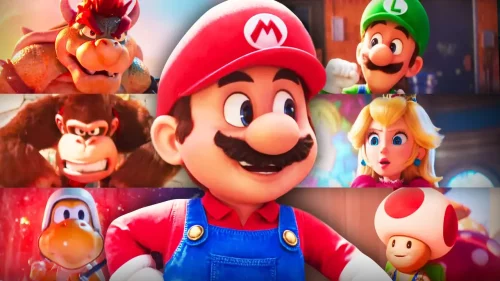Our Hannah on 13’s Hannah

Much has been made of the Netflix series “Thirteen Reasons Why” based on the book by the same name. Here, junior Hannah Wilson provides her take on the binge worthy show.
13 Reasons Why is a Netflix Original series that portrays the life and ultimate suicide of Hannah Baker. As the show unfolds, the audience, along with Hannah’s friends, family, and peers, learns why Hannah decided to end her life. Despite finishing the show in record time and enjoying the series as a whole, I felt uncomfortable with some of the underlying messages and the glorification of suicide that resulted from the show’s popularity.
- The show implies suicide is the survivors’ faults:
The entire show is based on the 13 tapes Hannah records, each one dedicated to someone she blames for her suicide. Clay, the protagonist, tortures himself with guilt throughout the show with the idea that “he killed Hannah Baker.” The show leaves many viewers with the impression that if you don’t catch the signs, you’re to blame.
- The show glorifies suicide:
Many viewers felt the show implied the idea that leaving tapes/videos/notes is the only way to effectively send a message to the world. The more appropriate option, the one that should be emphasized on television, is that surviving, thriving, and telling your story is the best way to speak out.
- Suicide causes were simplified:
The show simplified the issue of suicide by conveying Hannah’s suicide as a direct result of bullying, sexual assault, etc. when suicide and depression are far more complex in reality.
- The show NEVER addresses mental illness:
Mental illness such as depression is a major component in the issue of suicide, one that the show failed to mention regarding Hannah or her friends and family after her death.
- Hannah blames everyone else for her suicide:
Although she does state she didn’t care enough to save herself, it was clear she was looking for someone else to become her knight in shining armor. Hannah essentially blames everyone around her for her death when ultimately, suicide is a choice made by those who commit it. Hannah is displayed as helpless, having no other alternative, when the show should have emphasized the things she could have done to improve her situation.
- The school counselor:
The school counselor is portrayed as someone who disregards Hannah’s feelings and the clear signs she displays of being suicidal. Not only is this literally illegal, but this is a massive misrepresentation of what a qualified professional would do that could dissuade real students from seeking out help from their school or counselor.
- Hannah Baker’s character portrayal:
As I watched the show, I grew more and more agitated with Hannah and the increasingly dramatic, attention-seeking portrayal her character was given. This is highly offensive to people with real mental illnesses and suicidal thoughts because we never really get to delve into the mind of Hannah Baker or recognize that she was ill.
- No healthy solution is ever given:
The show offers no solution to coping with bullying or sexual assault in a healthy way. The only “solutions” offered are suicide or self-harm. “It’s what you do instead of killing yourself,” says one character who is found slitting her wrists. Again, these solutions simplify and glorify the struggle of mental illness.
- The show insinuates that there are no good people in the world and that suicide is a form of revenge:
The show reinforces the idea in many teens, especially those with mental illness, that the friends, family, and peers around them are not only unable to help, but actively betraying them. Hannah then uses her suicide as an act of revenge against those who wronged her.
- Psychologists and professionals weren’t consulted:
The show provides no resources for those struggling with suicidal thoughts or mental illness, and violates the guidelines set by the American Foundation for Suicide Prevention. The creators of the show never sought out advice for how to correctly portray such a delicate subject, and appear to have disregarded the potential negative impacts that could have resulted.
Although I may be critical, I’m proud of the show for stepping outside the confines of normal television and confronting taboo subjects such as sexual assault and suicide. Bold measures such as this show are the stepping stones on which we can eventually solve these social issues. However, they portrayed suicide as a viable option that would be considered by any rational, healthy person going through a difficult time. Other responsible shows who are tackling difficult, complex issues end with an important message addressing those with similar situations and how to get help. 13 Reasons Why chose to address those complexities with clichés instead of delving deeper.


